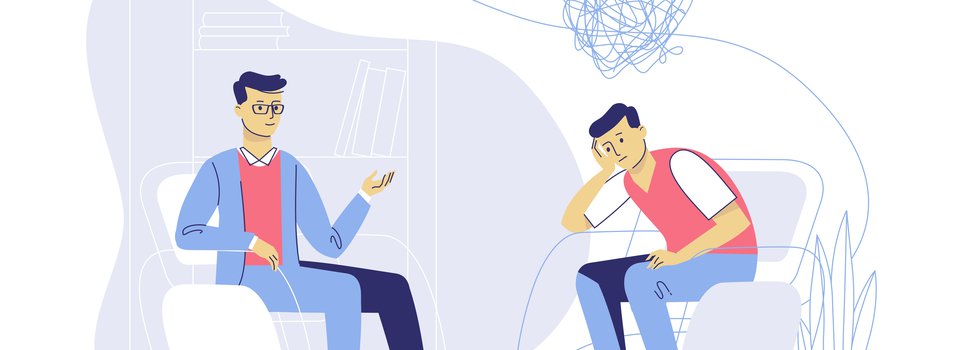Historically, men’s mental health concerns have taken a backseat. When reflecting on the media and our daily lives, it can be easy to notice that there is stigma surrounding men's emotions. Men are seemingly restricted to a narrow range of feelings they can express without fear of criticism, such as confidence, pride, and anger, but never emotions like sadness, depression, anxiety, or grieving. While men regularly experience these emotions and feelings of vulnerability, they may feel that it is unacceptable to express these emotions. Social media, movies, and TV perpetuate expectations of men’s behaviour, and implicitly tell men to “man up” and “tough out” mental health issues. Depression and anxiety among men is common yet, men are not getting the help they need. According to the Anxiety and Depression Association of America, nearly 1 in 10 men experience depression or anxiety, but less than half will receive treatment (n.d.). This is primarily because men are less likely to speak up about mental health issues and are thus less likely to be treated.
From a societal perspective, men tend to bottle up their emotions. Generations of men have pushed their emotions deep down inside, neglecting to show the rest of the world their sensitive sides. But why? Men may feel as though they need to be self-reliant, thus making it inappropriate to express their emotions to others. This behaviour is constantly being reinforced by the stereotypical male protagonist in film and television. Such characters are often strong, hard-working, and tough, but rarely display vulnerability or admit weakness. Expectations for men to conceal their genuine emotions stems not only from the media but is also modelled by those around us. This serves to maintain a cycle of stigma regarding men’s mental health concerns and dissuades men from reaching out for help.
What steps can be taken to better support men and end the stigma surrounding their mental health? Studies conducted by the Men’s Health Foundation found that group therapy has shown to help men with anxiety and depression (2023). These sessions are targeted towards men who feel stigma and shame when it comes to discussing their emotions. They are led by a mental health professional implementing behavioural strategies to help reorient thinking, acting, and making lasting change. Men have shown to greatly benefit from the support of other men in these safe spaces. The group atmosphere allows individuals to feel less isolated and gives them the opportunity to learn from others. Additionally, the group environment can be less intimidating than working one-on-one with a therapist. While group therapy can be an excellent fit for some, one-on-one help can work better for others.
Looking for resources to begin your mental health journey at the University of Alberta? The Department of Anesthesiology and Pain Medicine provides an example of incorporating men’s mental health concerns into our campus community. A distinct program is offered that aims to provide information on men’s mental health in the form of a free online module that is considered an accredited self-assessment program. The Peer Support Centre (PSC) is a free service that is a part of the student’s union here on campus, and is a confidential, judgement-free place for people to talk and seek support. Though we are closed for the summer, we offer a wide catalogue of on and off-campus resources that can provide extra support on our website. Over the summer Counselling and Clinical Services and One at a Time Therapy are available for support. If you are looking to talk to someone right now, the Edmonton Distress Line (780-482-4357) is available for 24/7 support.
While discussions about men’s mental health have historically lacked attention, we have seen notable attempts to reduce this stigma in recent years. The stereotype that men cannot display mental health concerns or express emotions is still prevalent in society but can be changed through continued efforts and awareness. Implementing and increasing the number of organizations that provide effective support and reduce stigma are essential, along with accepting displays of emotion and vulnerability from ourselves and others in our everyday lives.
Author Biography:
My name is Fraser Paiement, and I am a third-year student at the University of Alberta, majoring in psychology and minoring in anthropology. I am a first-year volunteer at the Peer Support Center here on campus. Outside of being a student, I am a reservist and enjoy listening to music in my free time.
References:
Anxiety and Depression Association and Depression Association of America. (n.d.). Men’s Mental Health. Anxiety and Depression Association of America. https://adaa.org/find-help/by-demographics/mens-mental-health
Canadian Men’s Health Foundation. (2023, October 10). Mindshift groups therapy program reveals growing need for men’s mental health. Canadian Men’s Health Foundation. services. https://menshealthfoundation.ca/press/mindshift-groups-therapy-program-reveals-growing-need-for-mens-mental-health-services/


